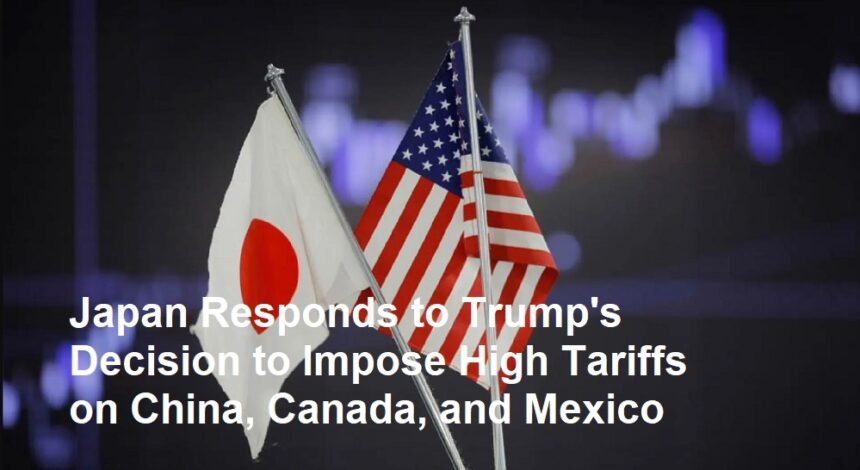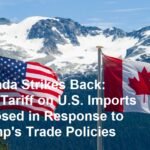In a move that has sent ripples across the global economy, U.S. President Donald Trump’s administration announced the imposition of high tariffs on imports from China, Canada, and Mexico. This decision has drawn sharp reactions from trading partners worldwide, including Japan, which has expressed concern over the potential impact on international trade and economic stability.
The tariffs, which target a wide range of goods, including steel, aluminum, and various manufactured products, were justified by the Trump administration as necessary to protect American industries and jobs. However, Japan, a key U.S. ally and major trading partner, has criticized the move as protectionist and counterproductive. In a statement issued by the Japanese Ministry of Foreign Affairs, the government urged the U.S. to reconsider its decision, warning that such measures could disrupt global supply chains and harm the broader international trading system.
“Japan is deeply concerned about the U.S. decision to impose high tariffs on its trading partners. These measures could lead to a chain reaction of trade restrictions, undermining the principles of free and fair trade that have been the foundation of global economic growth,” said Toshimitsu Motegi, Japan’s Minister of Foreign Affairs. He emphasized the importance of resolving trade disputes through dialogue and cooperation rather than unilateral actions.
Japan’s response reflects its broader concerns about the potential fallout from the U.S. tariffs. As a major exporter of automobiles, electronics, and machinery, Japan is heavily reliant on global trade and has a vested interest in maintaining stable trade relations. The tariffs on steel and aluminum, in particular, could have indirect consequences for Japanese industries, as they may lead to increased costs and reduced competitiveness in international markets.
In addition to its diplomatic efforts, Japan is reportedly exploring ways to mitigate the impact of the tariffs on its economy. This includes seeking exemptions for certain Japanese products and strengthening trade ties with other nations, particularly within the framework of the Comprehensive and Progressive Agreement for Trans-Pacific Partnership (CPTPP). The CPTPP, a free trade agreement involving 11 countries, is seen as a counterbalance to protectionist policies and a way to promote economic integration in the Asia-Pacific region.
The Japanese business community has also voiced its concerns. Keidanren, Japan’s largest business federation, issued a statement calling for calm and urging all parties to avoid escalating tensions. “The imposition of tariffs by the U.S. is a worrying development that could destabilize the global economy. We hope that the U.S. and its trading partners will engage in constructive dialogue to resolve their differences,” said Hiroaki Nakanishi, Chairman of Keidanren.
Meanwhile, the U.S. tariffs have already prompted retaliatory measures from China, Canada, and Mexico, raising fears of a full-blown trade war. Japan, while not directly targeted by the tariffs, is closely monitoring the situation and preparing for potential ripple effects. Economists have warned that a prolonged trade conflict could slow global economic growth, reduce investment, and increase costs for consumers and businesses worldwide.
As the situation unfolds, Japan is likely to continue advocating for multilateral solutions to trade disputes. The country has long been a proponent of free trade and has played a key role in shaping international trade agreements. In the face of rising protectionism, Japan’s response will be crucial in determining the future of global trade relations.
For now, the world watches and waits to see how the U.S. and its trading partners will navigate this contentious issue. The stakes are high, and the outcome could have far-reaching implications for the global economy. Japan’s call for dialogue and cooperation serves as a reminder of the importance of maintaining open and fair trade systems in an increasingly interconnected world.













